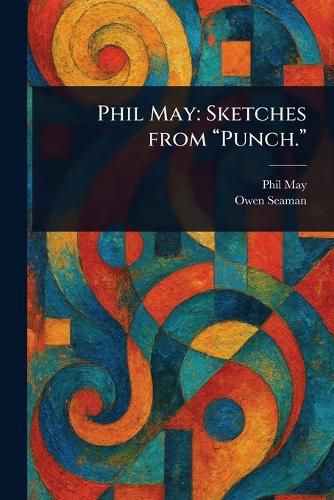Readings Newsletter
Become a Readings Member to make your shopping experience even easier.
Sign in or sign up for free!
You’re not far away from qualifying for FREE standard shipping within Australia
You’ve qualified for FREE standard shipping within Australia
The cart is loading…






This title is printed to order. This book may have been self-published. If so, we cannot guarantee the quality of the content. In the main most books will have gone through the editing process however some may not. We therefore suggest that you be aware of this before ordering this book. If in doubt check either the author or publisher’s details as we are unable to accept any returns unless they are faulty. Please contact us if you have any questions.
A glimpse into the golden age of British humor, "Sketches from "Punch"" showcases the brilliant cartooning and caricatures of Phil May, a celebrated contributor to the iconic Punch magazine. This collection offers a fascinating look at May's distinctive style and keen observational wit, capturing the essence of late 19th and early 20th-century society through incisive and often hilarious drawings.
A master of line and expression, May's work remains remarkably fresh and relevant. Explore the artistry that made him a household name and a major influence on the art of cartooning. This republication preserves the historical context and enduring charm of May's contributions to Punch, offering a treasure trove for enthusiasts of British humor and the history of cartoon art.
This work has been selected by scholars as being culturally important, and is part of the knowledge base of civilization as we know it.
This work is in the public domain in the United States of America, and possibly other nations. Within the United States, you may freely copy and distribute this work, as no entity (individual or corporate) has a copyright on the body of the work.
Scholars believe, and we concur, that this work is important enough to be preserved, reproduced, and made generally available to the public. We appreciate your support of the preservation process, and thank you for being an important part of keeping this knowledge alive and relevant.
$9.00 standard shipping within Australia
FREE standard shipping within Australia for orders over $100.00
Express & International shipping calculated at checkout
This title is printed to order. This book may have been self-published. If so, we cannot guarantee the quality of the content. In the main most books will have gone through the editing process however some may not. We therefore suggest that you be aware of this before ordering this book. If in doubt check either the author or publisher’s details as we are unable to accept any returns unless they are faulty. Please contact us if you have any questions.
A glimpse into the golden age of British humor, "Sketches from "Punch"" showcases the brilliant cartooning and caricatures of Phil May, a celebrated contributor to the iconic Punch magazine. This collection offers a fascinating look at May's distinctive style and keen observational wit, capturing the essence of late 19th and early 20th-century society through incisive and often hilarious drawings.
A master of line and expression, May's work remains remarkably fresh and relevant. Explore the artistry that made him a household name and a major influence on the art of cartooning. This republication preserves the historical context and enduring charm of May's contributions to Punch, offering a treasure trove for enthusiasts of British humor and the history of cartoon art.
This work has been selected by scholars as being culturally important, and is part of the knowledge base of civilization as we know it.
This work is in the public domain in the United States of America, and possibly other nations. Within the United States, you may freely copy and distribute this work, as no entity (individual or corporate) has a copyright on the body of the work.
Scholars believe, and we concur, that this work is important enough to be preserved, reproduced, and made generally available to the public. We appreciate your support of the preservation process, and thank you for being an important part of keeping this knowledge alive and relevant.